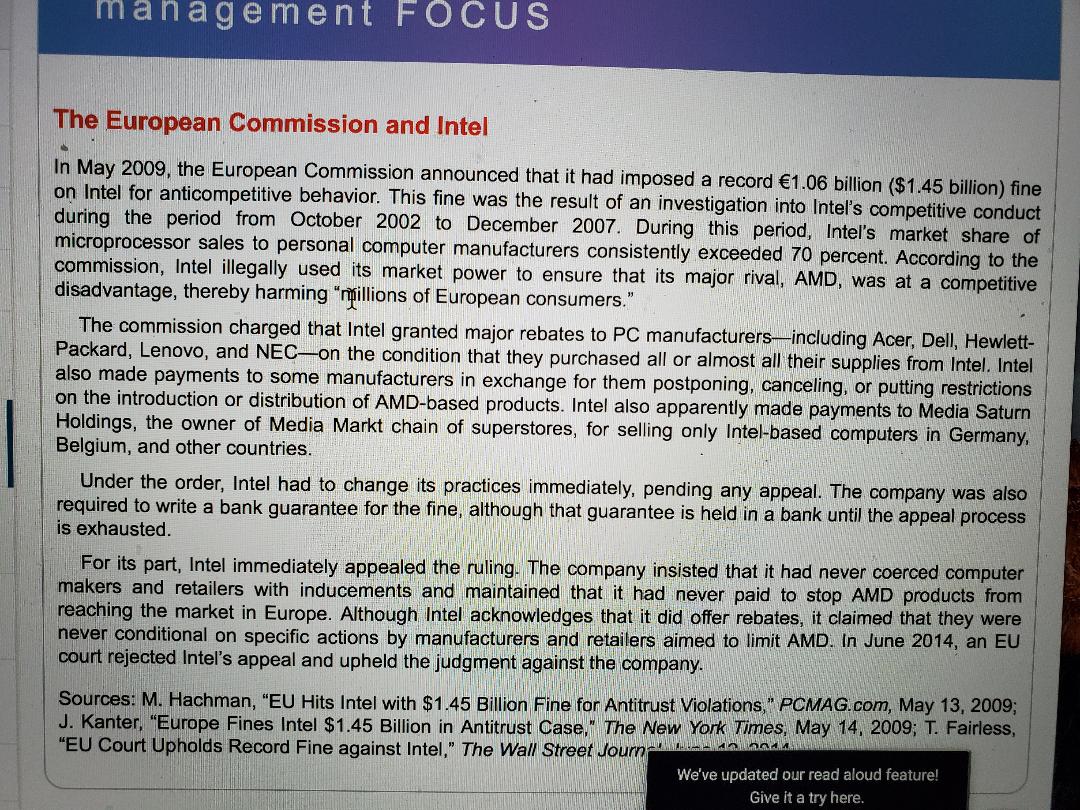Answered step by step
Verified Expert Solution
Question
1 Approved Answer
Do you think the European Commission's findings and fine related to Intel were valid? What are the future implications of non-U.S. Commissions (such as the
- Do you think the European Commission's findings and fine related to Intel were valid?
- What are the future implications of non-U.S. Commissions (such as the European Commission) related to U.S. companies wanting to do business in other parts of the world?

Step by Step Solution
There are 3 Steps involved in it
Step: 1

Get Instant Access to Expert-Tailored Solutions
See step-by-step solutions with expert insights and AI powered tools for academic success
Step: 2

Step: 3

Ace Your Homework with AI
Get the answers you need in no time with our AI-driven, step-by-step assistance
Get Started


